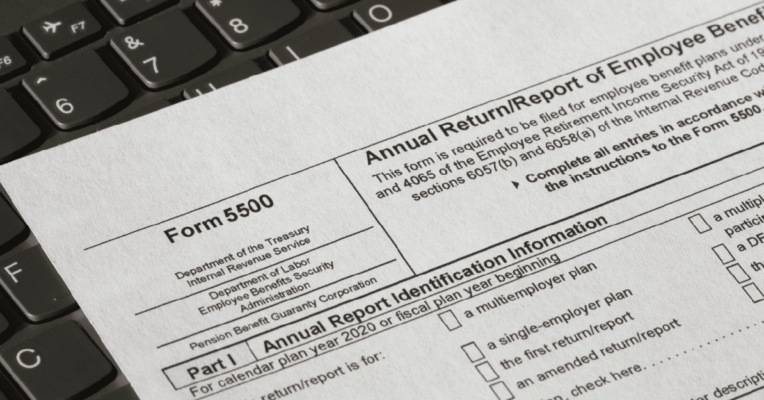Qualified Default Investment Alternative (QDIA): Protecting Companies and Employees in Retirement Plans

For many companies, offering a default investment fund is a critical component of their retirement plan, especially for those who utilize automatic enrollment and may choose investments on their employees’ behalf. However, choosing default funds can expose companies to potential liability.
To mitigate these risks, ERISA introduced Qualified Default Investment Alternatives (QDIAs) — a category of approved funds that benefit both the company and its employees. QDIAs protect companies, as these funds align with ERISA’s standards and offer a structured and safer option for employees’ retirement investments.
What Is a Qualified Default Investment Alternative (QDIA)?
A QDIA is an ERISA-approved default fund that companies can use for employees who do not select their investment options. QDIAs help balance risk and offer growth potential, essential for employees’ retirement savings. ERISA’s approved QDIA options include:
- Professionally Managed Accounts
- Target Date Funds
- Lifecycle Funds
- Balanced Funds
The risks of non-QDIA default funds
Companies that offer non-QDIA default funds may face significant financial risks if employees experience losses. Non-QDIA funds, such as Money Market Funds, Stable Value Funds, and Guaranteed Income Funds, are typically less diversified and may not provide the growth employees need to meet their retirement goals. In the event of substantial losses or missed earnings, companies may be required to reimburse employees.
Here’s an example: Consider an employee with $50,000 in their account, expecting to retire in 40 years. With a Vanguard Money Market Fund (a non-QDIA option), they might only have $75,000 at retirement. In contrast, if the default were a Vanguard Target Date Fund (a QDIA), they might retire with an additional $1.2 million in savings. Without QDIA protection, the company could be liable for this $1.2 million missed earnings.
How OpenPlan can help with QDIA compliance
At OpenPlan, we act as the Investment Fiduciary, responsible for selecting and monitoring investment options, including QDIAs. Our fiduciary process is designed to minimize risk exposure for the company while ensuring employees are on track to achieve their retirement goals. We provide oversight that seeks to protect companies from potential liabilities associated with non-QDIA default funds.
Additional support from OpenPlan
In addition to QDIA management, OpenPlan offers comprehensive support to retirement plan sponsors:
- Vendor management and benchmarking: We oversee recordkeepers and administrative partners, regularly benchmarking to ensure optimal performance and cost-efficiency for all vendors, including OpenPlan.
- Proactive plan design consulting: Our team aligns retirement plan features with the company’s goals, ensuring the benefit structure meets compliance and employee needs.
- Financial wellness benefits: Besides broad-based education, we provide employees unlimited, 1:1 access to licensed financial professionals, helping them make informed financial decisions and optimize retirement planning.
Choosing the right default investment options for retirement plans is essential for protecting companies and employees. By opting for a QDIA, companies can mitigate financial risks and align with ERISA’s guidelines. OpenPlan’s comprehensive investment fiduciary services seek to ensure companies meet QDIA requirements while supporting employees’ long-term financial security.
Interested in protecting your company and employees through compliant retirement planning? Contact OpenPlan today to learn more about our fiduciary and plan design services.
The information contained in this document is provided for informational purposes only and should not be construed as individualized advice. For individualized advice, please consult with your adviser.




